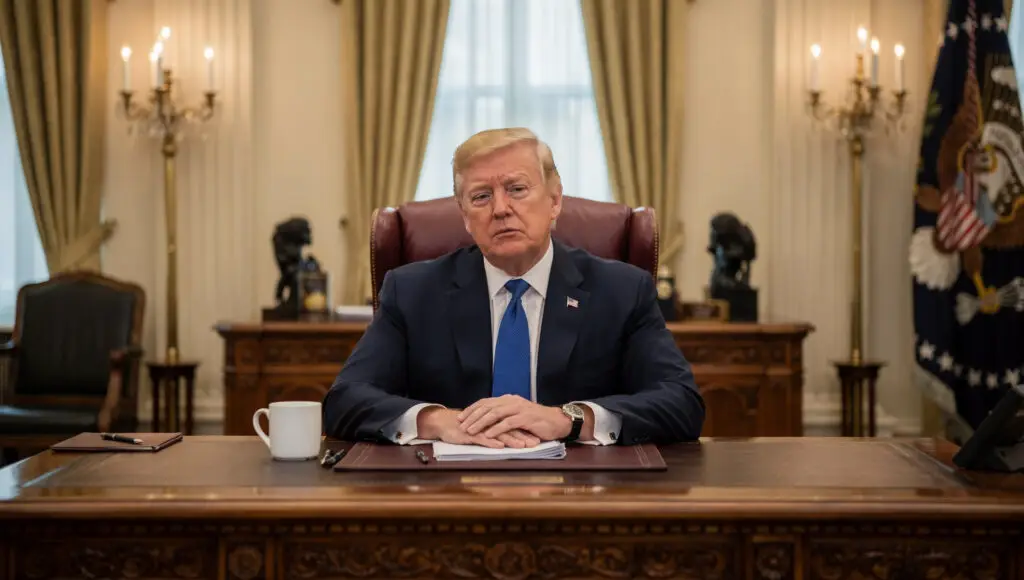Big Tech Finds an Open Door in Downing Street
When former Google CEO Eric Schmidt shared the UK’s problem was having “so many ways that people can say no,” he was speaking at an October 2024 investment summit, standing beside Keir Starmer. His presence symbolized more than just admiration for British innovation—it highlighted just how central US tech firms have become to Labour’s economic growth strategy.
The UK government’s focus on high-growth sectors has welcomed tech titans like Google, Amazon, Meta, and Apple with open arms. With trillions in market value and the promise of jobs and investment, these firms have quickly gained access to Whitehall’s corridors of power.
Fast-Tracked Access Raises Eyebrows
According to a former employee of a major US tech firm, access was never a challenge. “We never had a problem walking the corridors of Whitehall because we could claim to create thousands of jobs and create millions for the economy. Governments love job announcements,” the ex-employee said.
The numbers bear this out. Peter Kyle, Labour’s tech secretary, has held meetings with the tech sector nearly 70 percent more often than his predecessor Michelle Donelan. That’s more than one meeting per week, regularly involving representatives from Google, Amazon, Meta, and Apple.
Small Players Feel Shut Out
But the welcome mat for big tech has triggered a backlash from smaller UK-based innovators. Tim Flagg, chief executive of the UK Artificial Intelligence industry group UKAI, argues that the current relationship between government and tech disproportionately favors global giants.
“Our concern is that there is a huge imbalance between a handful of global players who are able to influence directly what No 10 is thinking about on policy, and the thousands of other businesses that make up the AI industry across the UK,” Flagg said. “Our voice is not being heard, but the economic growth that the government seeks will come from these companies.”
Building Influence Behind the Scenes
Critics also point to the strategic groundwork laid before Labour’s electoral victory. One industry source noted how tech giants used the pre-election period to establish relationships that would pay off after the landslide win.
Another source highlighted the significant access held by the Tony Blair Institute, funded in part by tech billionaire Larry Ellison. Although the Institute claims “intellectual independence over our policy work,” its voice has been influential in AI policy discussions within government.
AI Policy Sparks Industry Outcry
Tensions reached a boiling point over a controversial proposal allowing AI companies to use copyright-protected works without prior permission, unless rights holders opted out through an unclear process.
Although a source close to Kyle said the opt-out idea was no longer the preferred choice, the damage was already done. A broad coalition of creatives including Paul McCartney, Dua Lipa, and Kazuo Ishiguro launched a campaign against the proposal. The News Media Association also voiced strong opposition, joined by Google and OpenAI.
A Costly Gamble on Copyright
A former government adviser warned that the move to weaken copyright protections—seen as the “lowest hanging fruit” in tech-friendly policymaking—was misguided. “In taking this approach, government risks the worst of all worlds, which is devastating a sector where the UK is actually world-leading, while not actually taking the actions necessary to make the UK an AI superpower,” the adviser said.
The copyright debate has turned into a public relations headache, potentially undermining the very sectors the government seeks to empower.
Government Defends Its Approach
Despite the criticism, a spokesperson for the Department for Science, Innovation and Technology defended the government’s actions. They said the department “makes no apologies” for working closely with a sector that employs 2 million people and emphasized the importance of regular engagement with companies of all sizes.
In his chat with Schmidt, Starmer put it plainly: “Does this promote growth or does it not promote growth?” For the government, the answer lies in tech. But the path to growth, critics argue, cannot come at the expense of fairness, balance, and the broader UK innovation ecosystem.













